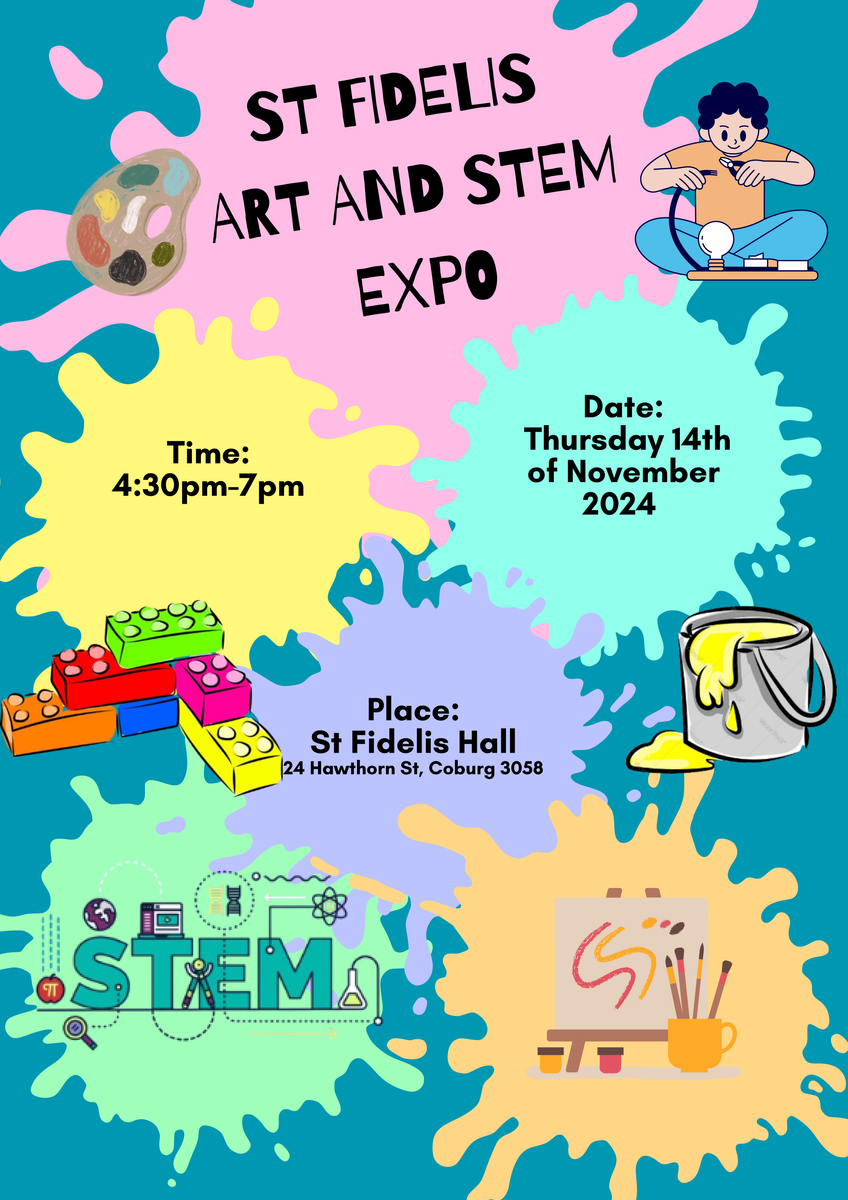Learning & Teaching
Learning and Teaching encompasses the following areas: Student Outcomes, Curriculum, Assessment, Reporting, Principles and Pedagogy.
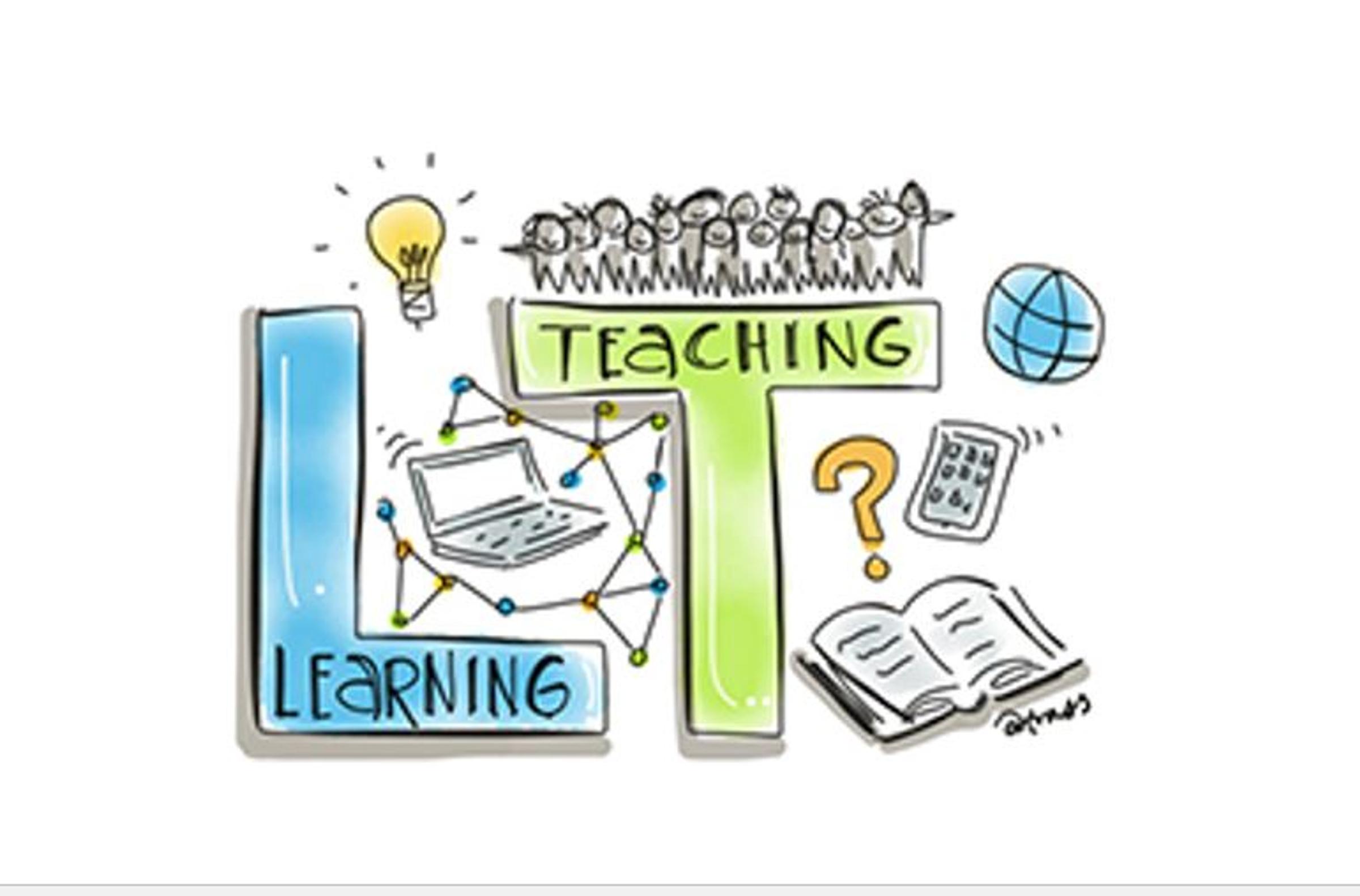
Learning & Teaching
Learning and Teaching encompasses the following areas: Student Outcomes, Curriculum, Assessment, Reporting, Principles and Pedagogy.


HEALTH AND WELLBEING INQUIRY UNIT FOUNDATION TO YEAR 4
We Are ROARsome’—Foundation to Grade 4 Primary Years Personal Safety Program. The program is designed to empower children with simple strategies for dealing with unsafe situations, including potential abuse.
At the end of the Program, students will be able to:
HELPFUL WEBSITES FOR PARENTS
Australian Office of the eSafety Commissioner www.esafety.gov.au
Up-to-date resources and information for parents and educators.
Common Sense Media www.commonsensemedia.org
Up-to-date reviews and information about apps, platforms, games, movies, books, etc.
Kids Helpline 1800 55 1800 or www.kidshelpline.com.au
Free, private, confidential telephone and online counselling service for young people aged between 5 and 25.
Vira
Writing can be a challenge for some children due to reasons like writer's block, lack of ideas, disorganisation, or disconnection. Over the next couple of weeks, I’ll share tips to help support your child’s writing at home.
Start with Inspiration
The hardest part of writing can be knowing where to begin. Talk with your child about experiences that spark their imagination. Inspiration can come from everyday moments, like a walk, a TV show, photos from a special day and reading.
Create a Writing Corner
A dedicated writing space can encourage your child to write more. This area should be quiet, comfortable, and well-lit. Stock it with writing supplies like notepads, pens, pencils, post-it notes, and crayons, along with creative prompts like magazines or toys. A properly sized desk and chair can also help with handwriting and posture.
List Ideas
Encourage your child to jot down any ideas they think of. No idea is a bad one. Here are some techniques to inspire them:
Plan and Plot
For story writing, having a plan is helpful. Use post-it notes to outline a storyline and create an exciting sequence of events.
Reluctant writers may need extra support or a different approach. Understanding why they struggle can help you motivate them. Writing activities can be turned into games, and working in short bursts can help maintain their focus.
Try Different Methods
Keep writing fun by using various tools:
It’s okay for children to stick with familiar ideas that they’ve seen before or that you have discussed together when they are getting started with their writing. No author writes a perfect first draft. The students heard this from the author Sophie Laguna last term. Support your child by discussing vocabulary, grammar, and story techniques. Help them take note of words and ideas they want to use. Imitating these first can boost their confidence and creativity.
Review and Improve
Read together what your child has written, and choose one area to improve. If their writing needs more description, encourage them to use their five senses. Discuss figurative language like similes and metaphors, which they’ve learned in school. Year 1/2 and Year 3/4 students have learned about these literary devices. Together check sentence structure and suggest adding conjunctions. Offer lots of encouragement, and challenge them gradually as this will build their perseverance.
As children gain confidence, their ideas will flow more freely, and they will become excited about their imagination. Allow them to experiment and make mistakes, it’s all part of the process. Celebrate their creativity, and remind them that improvement comes with practice, not perfection.
Reading and writing combined
Reading plays a huge part in helping children to learn the structure of stories. Encourage your children to read lots and take ideas to mould into their own masterpieces.
Bernadette Parnis
bparnis@sfmoreland.catholic.edu.au
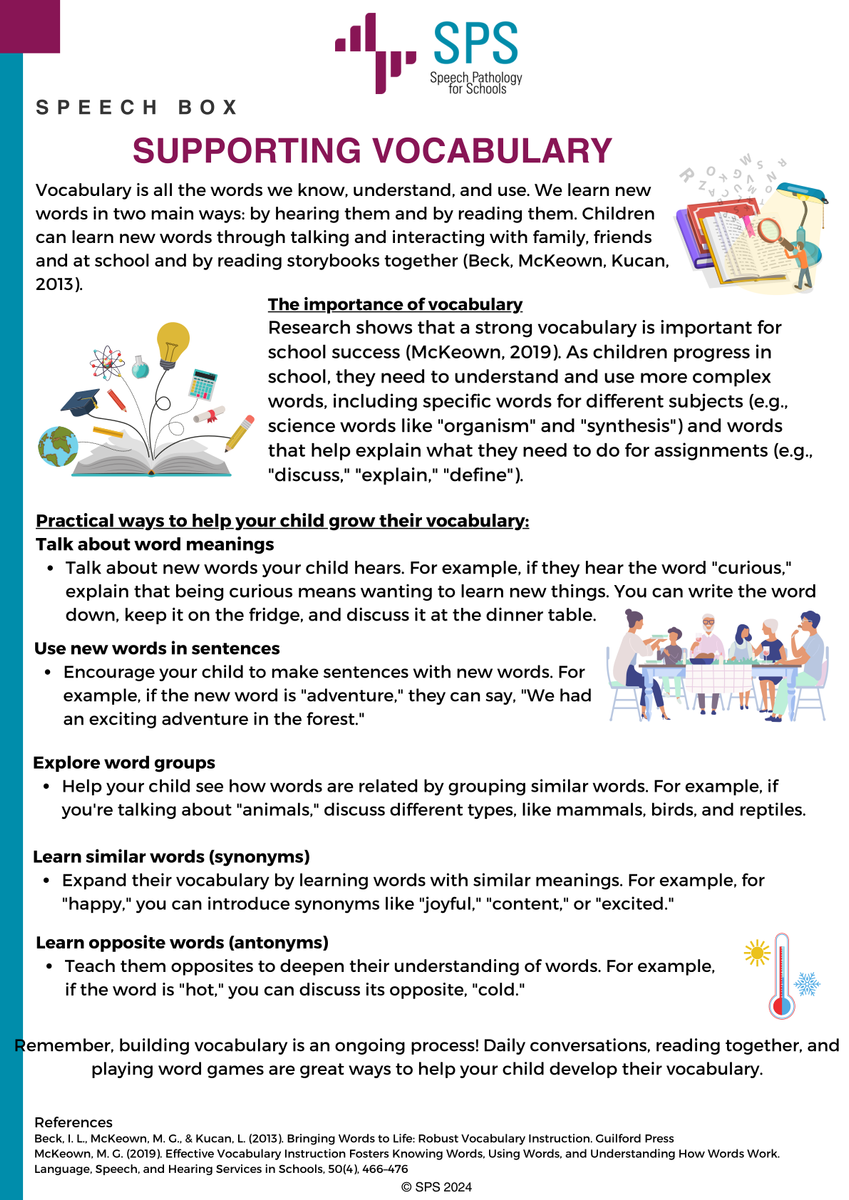





A huge Congratulations to the following students for their great work with the Australasian Primary School Mathematics Olympiad (APSMO)
Awards winners this year are:
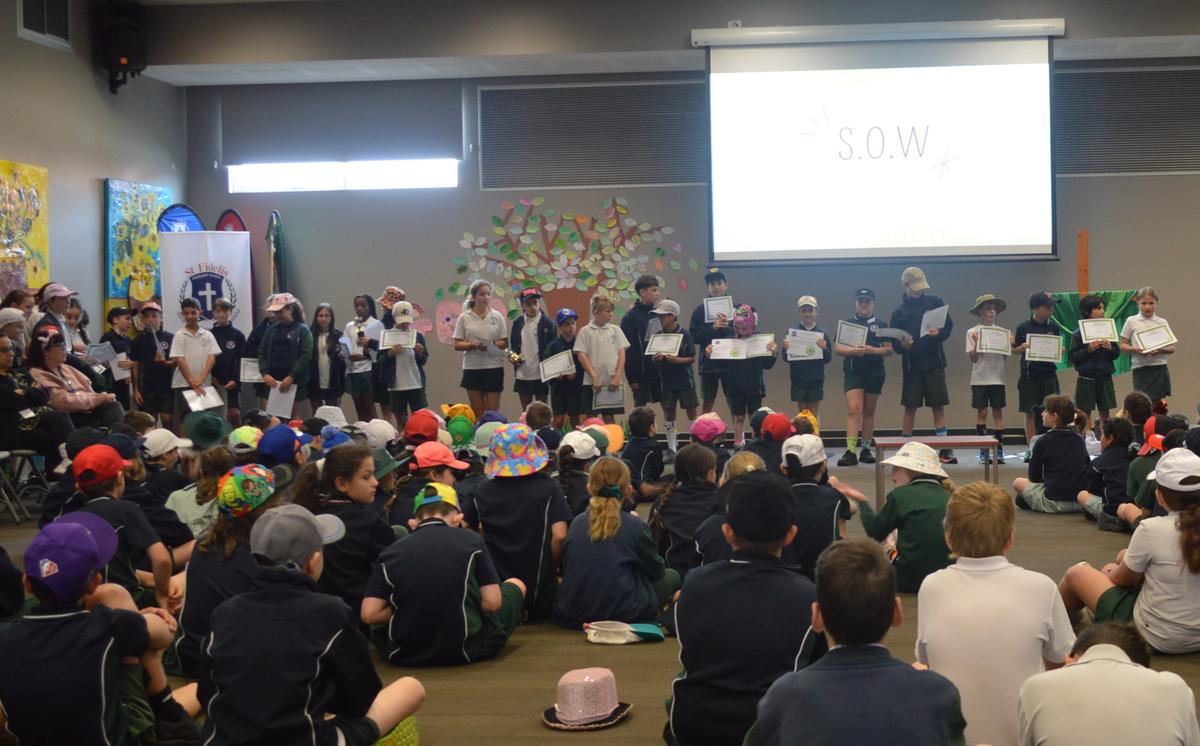



Junior Maths Games Day: A huge thank you to these parents who volunteered their time and came along to assist us on the day. Without their support, these days wouldn't be possible. The children love having parents present on these days.
|
|
MANCHESTER CITY SOCCER SHIELD
On Wednesday, 23 October, St. Fidelis Primary School had the opportunity for representatives from Years 4/5 to participate in the Manchester City Soccer Shield at Parade College, Bundoora. Our soccer team was magnificent, winning their 4 games: 3-1, 7-1, 14-0 & 3-2 and progressing to the final, which they unfortunately lost to a very strong team. Congratulations to the soccer team on their performance. They should feel very proud of their efforts.
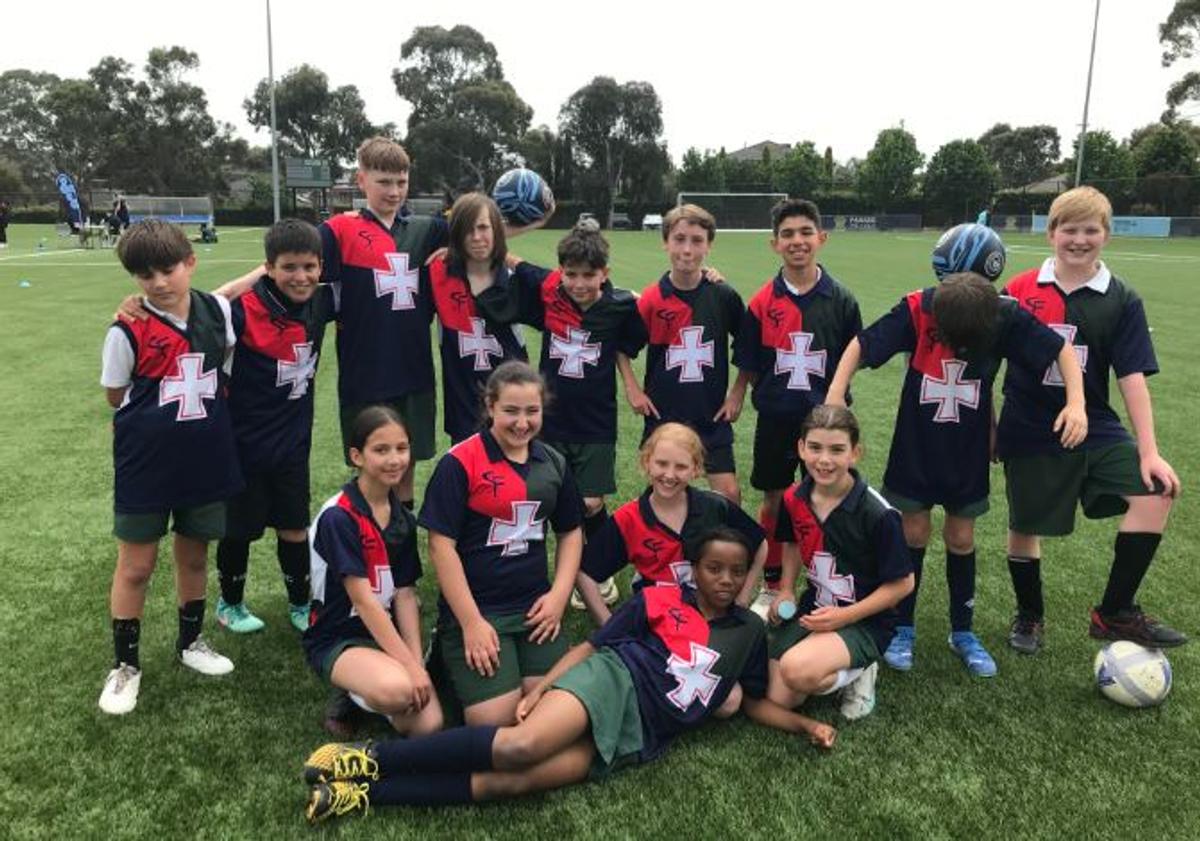
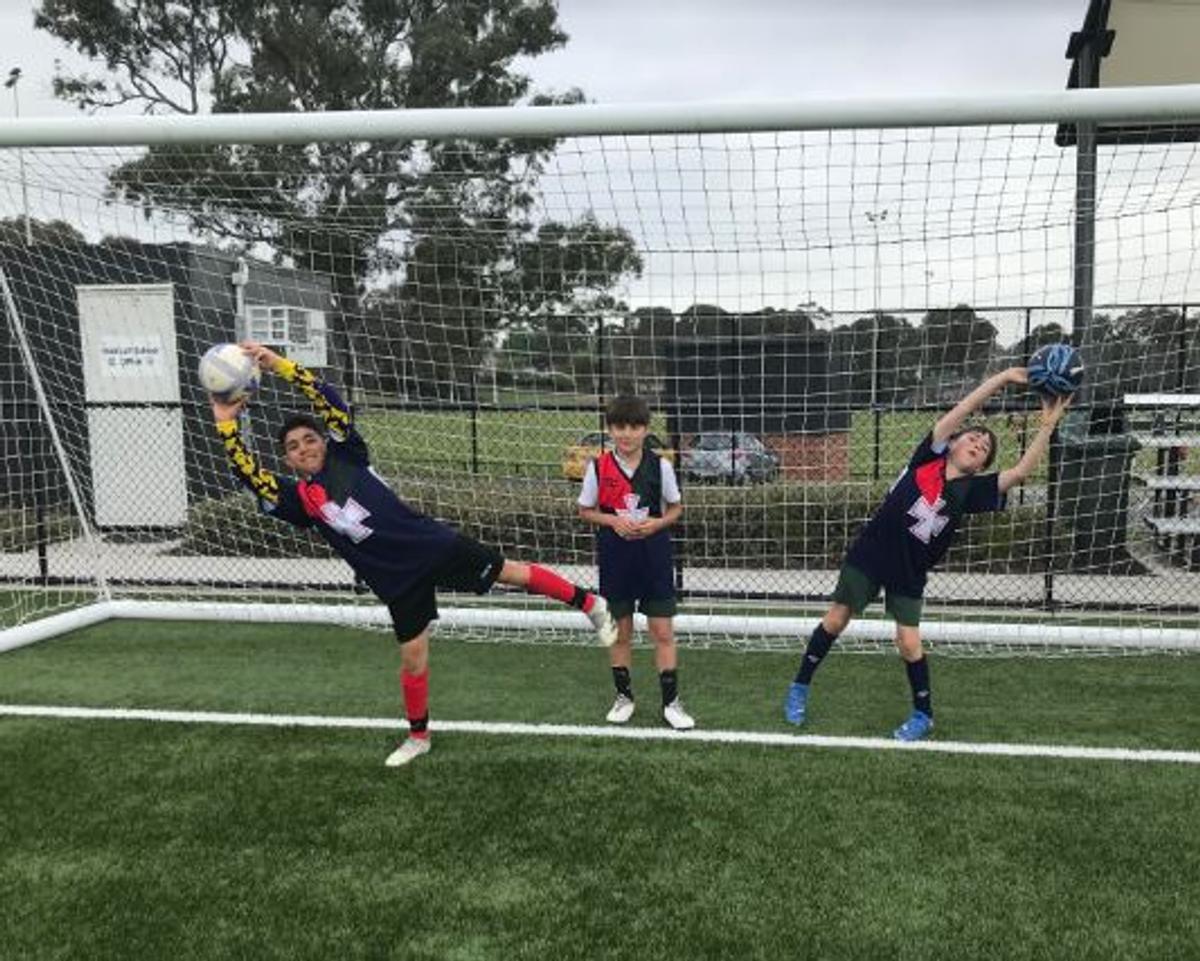
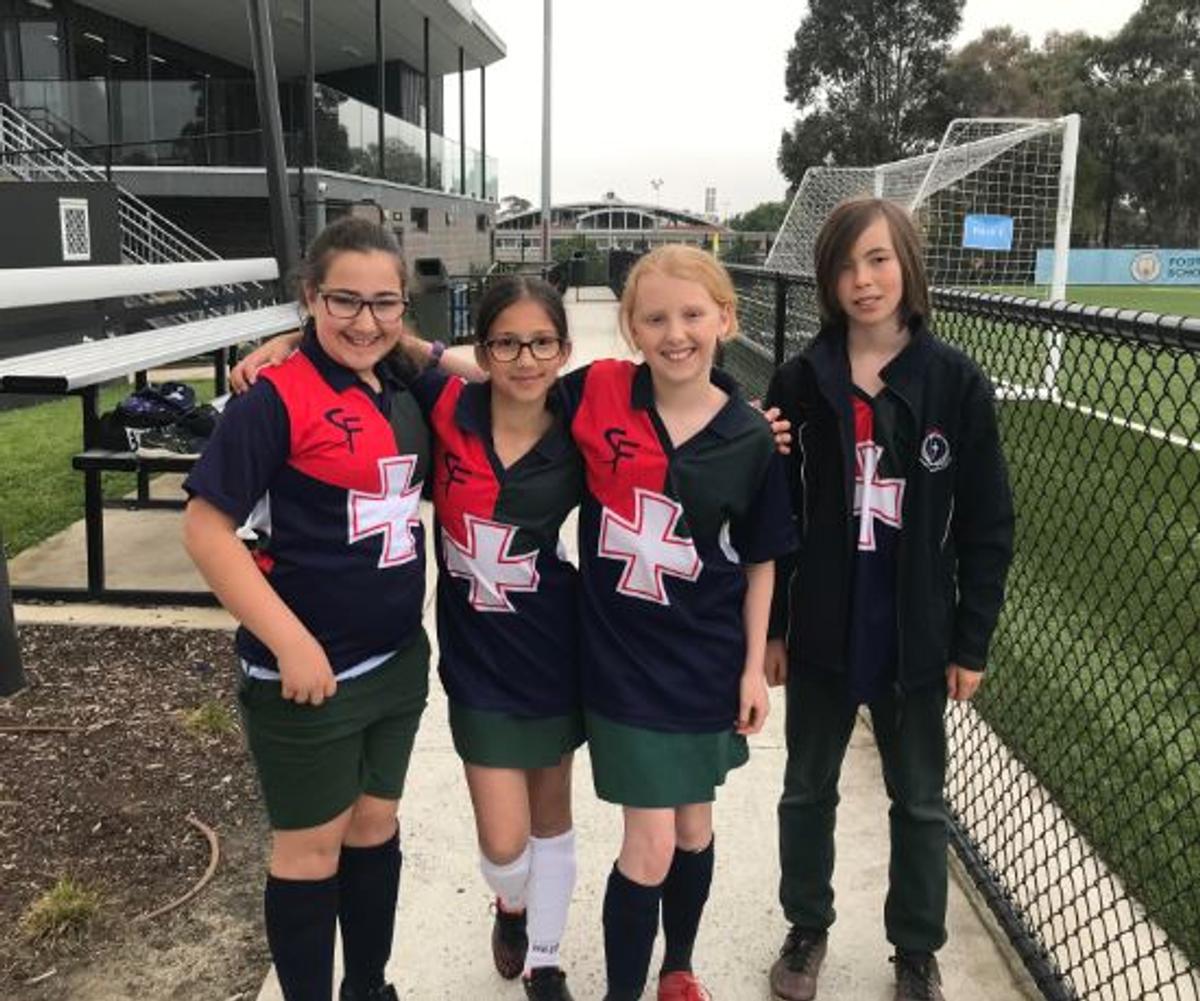
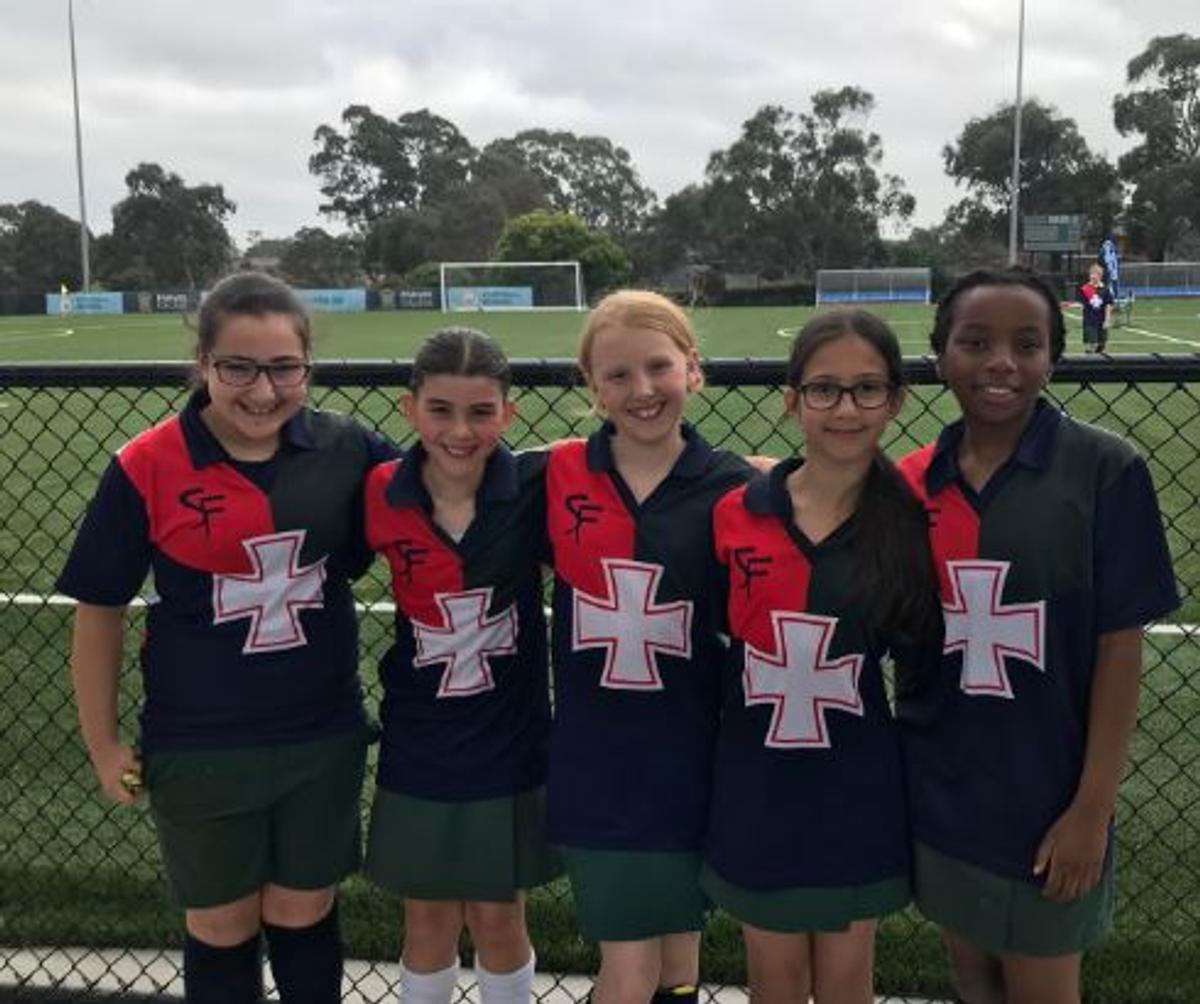




SPORTING SCHOOLS FUNDING
This Term, our Year 3/4 students will be participating in cricket clinics during their allocated sport sessions on Fridays.
Funding for these programs are provided through the Sporting Schools Funding Program (Government initiative).
Dates for the program are as follows:
Friday 8 November
Friday 15 November
Friday 29 November
Friday 6 December
ST FIDELIS SPORTS/ATHLETICS CARNIVAL
As you know, St. Fidelis Annual Sports Day will be held on Friday, 22 November, at the Coburg Athletics Track. The format is a little different than past events, with more of an athletics events focus. The students will be participating in 5 events: 70m/100m sprints, baton relays, long jump, discus and tunnel ball. Students will participate in their Team colours. A link is provided for the following:
